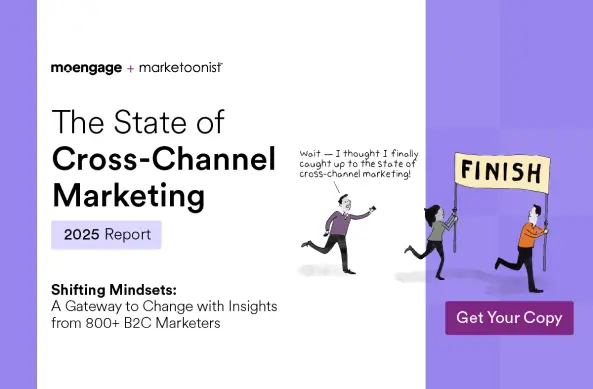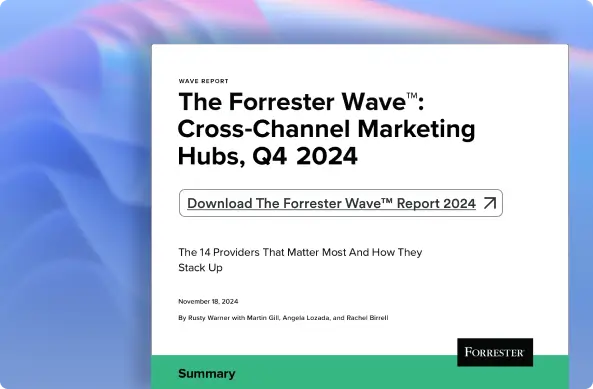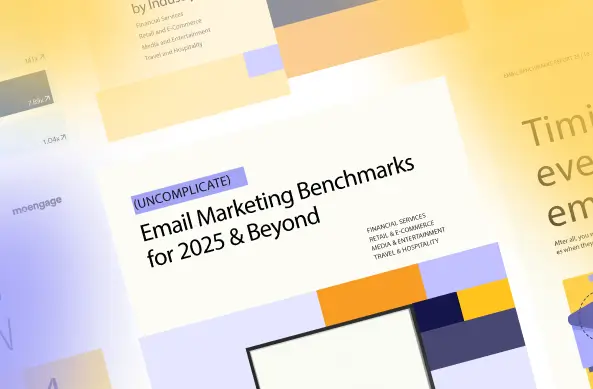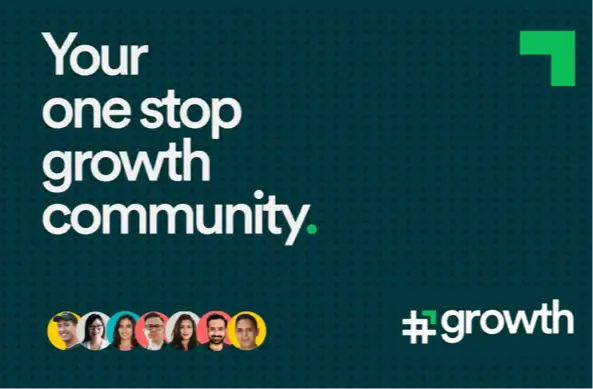How to Use WhatsApp for Business in Marketing in 2025
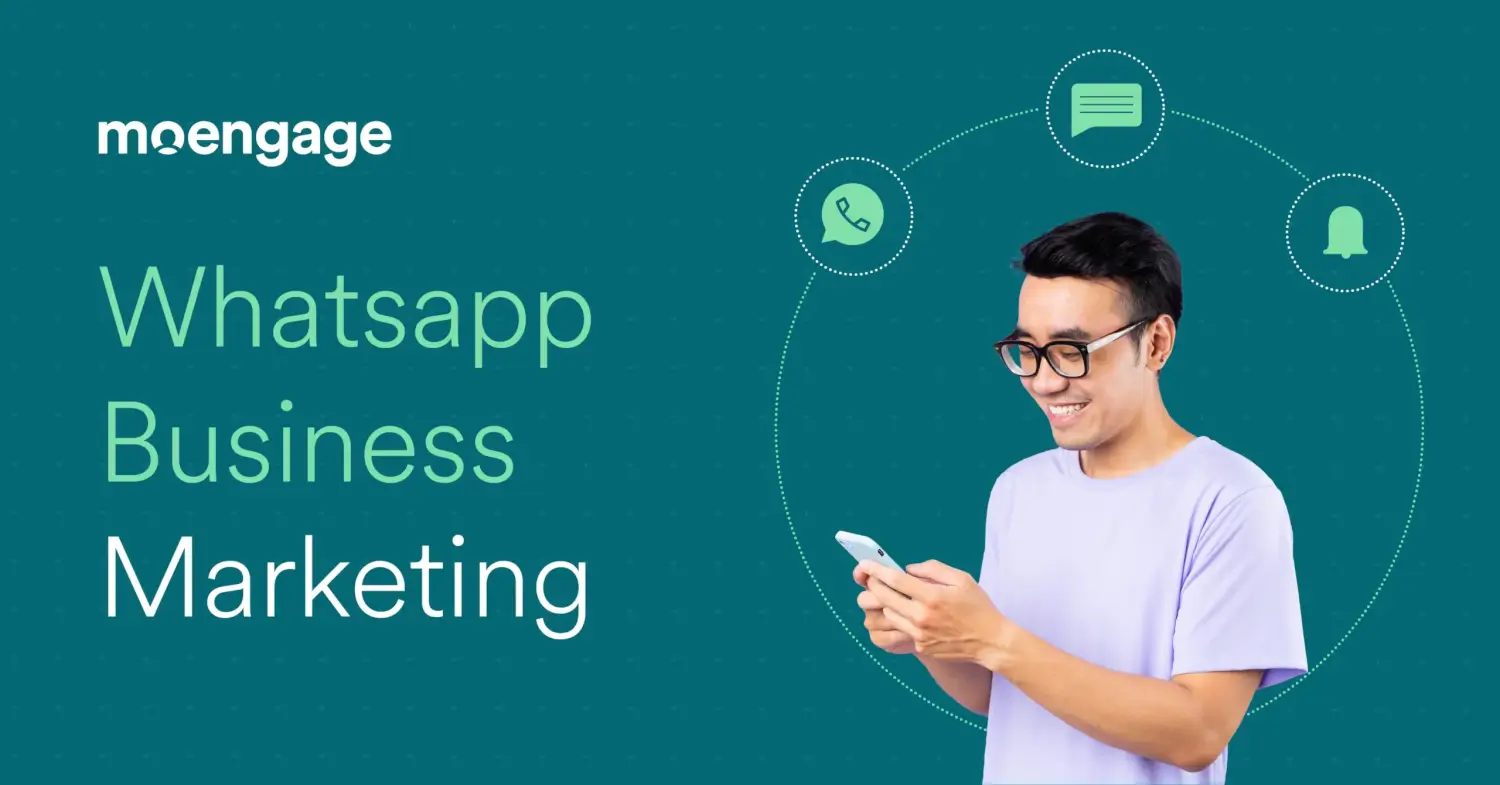
Reading Time: 11 minutes
| 🔍 Download Ebook here to understand how to use Whatsapp Business for marketing and conversational commerce. |
A study by McKinsey and Company found that the modern customer wants to communicate with brands the same way they communicate with friends and family—direct, informal, and to the point.
While brands were trying to reach out to the customers at a personal level via social media platforms, they still lacked the ability to connect with them on the communication channel they use the most—WhatsApp. To bridge this gap, WhatsApp introduced WhatsApp Business in 2018.
| Did you know that personalized WhatsApp campaigns can drive up to 3X the ROI? Check out your potential ROI using our WhatsApp ROI Calculator. |
Launched as a platform with simple tools to help small businesses keep in touch with their customers, WhatsApp Business is now used by over 5 million businesses around the world, with the WhatsApp Business API also allowing medium and large-sized businesses to reach out to thousands of customers at the click of a button.
So, let’s get into the brass tacks on how to use WhatsApp for your marketing efforts in 2025!
What Exactly Is WhatsApp for Business?
To put it candidly: A new way to drive customer engagement.
Most channels used for direct communication with customers are either one-way or time-bound—like sending them a brochure, where customers have little to no room to get answers to any questions they might have, or a sales call, where for the call to be successful, the customer has to be in a position to respond or engage meaningfully.
Customers might want more clarity about a product or service, or they may be occupied with something else and not be in a position to fully understand a product’s value proposition. This is where reaching out to your customers on WhatsApp Business helps.
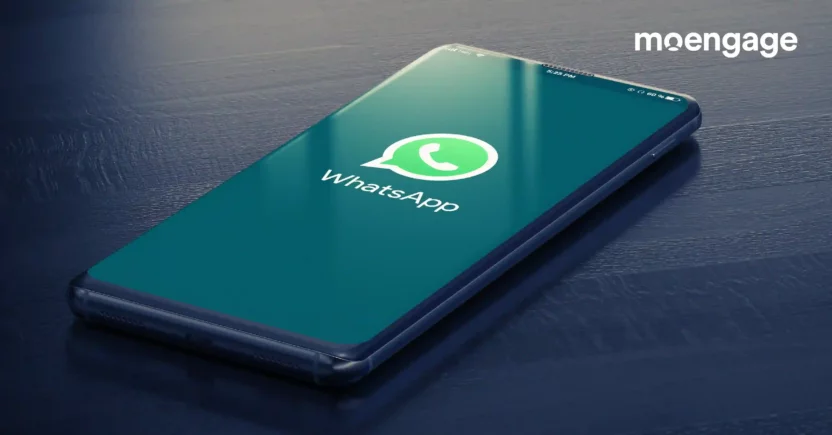
Sending your product messaging as WhatsApp messages gives the customer the option to open and engage with it at a time of their convenience. It also gives them the ability to get more information by replying to your message. This increases the chances of conversion.
Help Customers Find Happiness!
A Harvard research article showed that new messages received by a customer have the potential to release dopamine in their brain!
This makes them very curious about messages or updates that they might receive and increases the chances of them reading a message.
The proof of this theory is visible in WhatsApp’s open rate—a staggering 98% of messages sent on WhatsApp are opened, with the response rate for business communications as high as 45%—much higher than other channels of communication.
Some of the greatest marketing campaigns have been based on customer psychology, and the use of WhatsApp to drive more sales and build brand loyalty takes a similar approach.
Of course, it doesn’t mean that any kind of messaging would work, and it’s important to get your WhatsApp messaging strategy right. Let’s help you with some of the best practices you can follow while drafting your own WhatsApp marketing strategy.
How Is WhatsApp Business Different From WhatsApp?
Providing Improved Visibility
As a user of WhatsApp, you can add the details you would expect from a personal profile—your name, a picture, and a short ‘about’. But for a business, it’s crucial to have more details about the brand that can help customers make a decision.
The WhatsApp Business app enables businesses to have detailed profiles with all the relevant details existing or potential customers might need.

Apart from a profile image, you can add your working hours, address, website links and even create a product catalog within the app to showcase your products on your WhatsApp Business account. This can include images of your products, their prices, and even links back to your site.
Tools to Drive Quality Customer Conversations
WhatsApp Business comes with tools that have been created specifically to simplify customer messaging, which is very useful when you start reaching out to a large customer base. These business tools eliminate several manual tasks, saving you precious time that you can use to improve customer experience.
Automated messages are the most popularly known tool of WhatsApp Business, using which businesses can send welcome messages to new customers or notify them that their message was received. Automated messages also help in sending away messages when you are off the clock to let customers know when they can expect a response.

Broadcasts are another tool that is widely used by WhatsApp Business customers, letting you send a message to up to 256 customers in a single go. This comes in handy for small and medium businesses when they have an announcement to make, discounts to offer, or just send greeting messages to their customers.
The other tools you get when you use the WhatsApp for Business app are the ability to label conversations to create lists, short links, QR codes to open a direct chat with your business account, and in-chat payment.
These tools make WhatsApp Business Accounts all the more appealing to small and medium businesses.
Detailed Message Statistics
Among the many benefits of using the WhatsApp Business platform is the availability of detailed message statistics. These message statistics help you know your customer’s engagement levels and overall experience. The report shows how many messages were sent, delivered, read, and received.

You can also run real-time monitoring of messaging and spending analytics for your WhatsApp Business account in the Insights tab of your Meta WhatsApp Manager.
This portal lets you view the metrics of all customer conversations. The real-time graphs it shows allow you to look into how each metric is performing in detail across time.
Having such message statistics helps you not only to judge the success of your direct messaging but also enables you to plan better for all future campaigns of your WhatsApp Business profile.
WhatsApp Business API
The WhatsApp Business API was introduced for commercial, enterprise, and larger teams to manage more customer requests.
Created for businesses that are scaling and have outgrown the WhatsApp Business inbox, the WhatsApp Business API allows WhatsApp integration to a third-party tool to be able to analyze, prioritize, and respond to customer requests at scale.
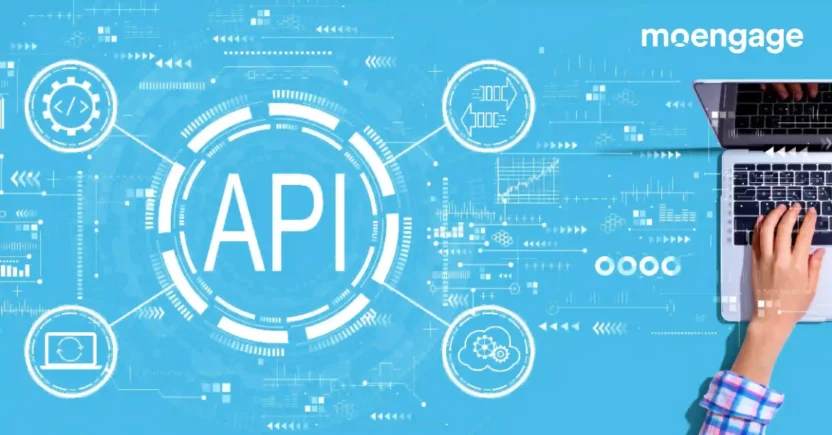
Providing increased automation features, WhatsApp Business API is a paid platform where businesses are charged based on user sessions. You can create a WhatsApp Business API account only through the API provided by WhatsApp Business Solution Providers. There are many Business Solution Providers in the market, with each offering a different set of accompanying features.
It generates advanced analytics reports that help you plan your broadcast messages better and also lets you build chatbots to send messages, reminders, and multimedia files.
Why Using WhatsApp for Business Is Important?
WhatsApp is where the world is!
Being the third most-used social platform in the world, there’s a good chance that a significant chunk of your potential customers is among the 2 billion customers of WhatsApp. This is why your marketing strategy today must recognize WhatsApp as a primary medium to keep in touch with your customers. And to do this, you need WhatsApp Business.
What makes WhatsApp more effective as a tool is that it is a popular choice among ALL important age groups, with both the young and the old using it on an everyday basis. For companies with a diversified customer profile, customer communication becomes extremely simple.
One of the many reasons behind WhatsApp’s worldwide adoption is its availability in regional languages. WhatsApp is available in over 40 languages on Apple devices and up to 60 languages on Android devices. For a business, this means improved customer communication, sending messages to customers in a language that they are most comfortable with. This can go a long way in ensuring customer satisfaction.
Many customer surveys have pointed out that customers are very comfortable with brand communications on WhatsApp because it makes it easier for them to get to know the brands they like, easily being able to place orders, and give feedback. A survey found that 64% of WhatsApp customers agreed that WhatsApp fosters a personal connection to businesses, and 68% of customers also call WhatsApp the easiest method of contacting a business.
Building Trust-based Customer Relationships
A study by Deloitte showed that trust is the most important aspect customers look for in their relationship with brands, with integrity and honesty ranking second and third. This means that your communication with customers must be such that it induces their trust and does not give them any doubt about the quality of products or services.
Whatsapp for Business helps you build trust-based relationships with your customers with the help of its many features. Verified Business Profiles is one such feature available to customers of the WhatsApp Business API, which creates trust that your brand is genuine and trustworthy.
Getting your business account verified gives you a lot of advantages, increasing the read rate of your messages, which results in a higher ROI on your messaging costs, customers being able to see your brand name even if they have not saved your details, and reducing the chances of customers blocking your contact on suspicion of it being spam.
Quality Ratings, a rating based on how customers receive your messages, their feedback, phone number blocks, and other reporting issues, also play a role in keeping WhatsApp free from spam and only for businesses that genuinely wish to build a relationship with their customers.
Safe and Secure Two-way Communication
Safety and privacy are their most important concerns when customers interact with a business profile. Especially on a messaging app, customers are more likely to share personal information such as their preferences, views, opinions, etc. With concerns about how businesses obtain and use customer data, your medium of communication with your customers has to be in tune with the best safety and privacy practices.
Conversations with a WhatsApp Business account are protected with the same end-to-end encryption that protects conversations between two users on WhatsApp. The signal encryption protocol that WhatsApp Business uses secures messages even before they leave a customer’s device.
WhatsApp’s Business Messaging policy also sets a very high standard for the collection of customer data and how it can be used by the business.
While your communications with your customers on WhatsApp are safe and secure, it’s important for your organization to have a published privacy policy that defines how you choose to use the data that customers give you. This has the dual benefit of improving your customers’ confidence in you and helping you make important decisions where customer data is involved.
A New and Innovative Form of Communication
With more than 2 billion users, WhatsApp is the world’s most popular downloaded messaging platform.
Considering that a huge customer base is ready to engage and spend in some form, while simultaneously also using WhatsApp, is great news! They are perhaps waiting for special offers from your organization. And with this channel, you can leverage all the information you gather from the analytics! This insight can also be used as an opportunity to understand and talk directly to your customers. In a world of short video formats and quick solutions, what’s stopping you from automating your customer journey and also your customer support?
How Brands Use WhatsApp Business Across the Buyer Journey?
Onboarding
Onboarding usually involves sending your customers a message with new offerings, and an onboarding process can make or break the customer’s experience with your product or service.
Brands can use WhatsApp Business for an onboarding process that is simple and informative. It nudges the customers to use their products or services.
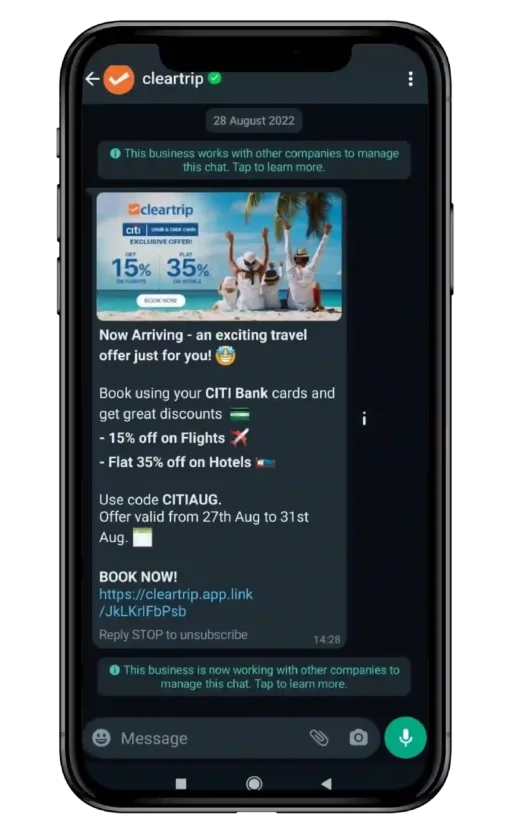
ClearTrip, an Indian travel and hospitality company, is a good example of a business using WhatsApp for a smooth onboarding process. ClearTrip initiates the onboarding process with a wonderful offer for their customers who either have accounts or showed some interest. They help educate the customers how combined offers can maximize saving options while they make a purchase. This way the customers are not only incentivized but also this right amount of personalization for the first message is also helpful!
First Purchase
The First Purchase by a customer can help brands understand their customers better and also helps with the next stages of a purchase. But it’s also one of the challenging stages for a customer to go through because of the lack of familiarity with a brand’s product and the doubts that they might be having about making a purchase.
When you use WhatsApp for Business, you can easily have real-time conversations with your customers about any questions they might have about your product or any challenge they may be facing in completing the purchase.
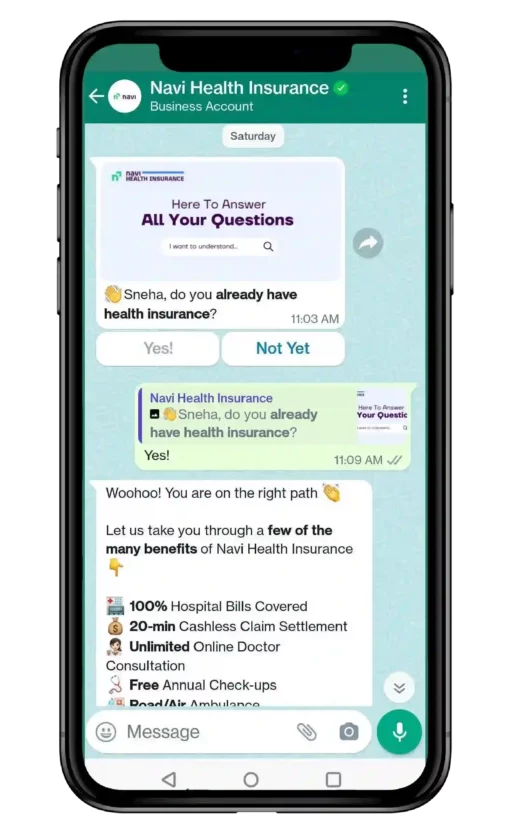
Navi, an Indian Fintech company, realized that many customers who had already expressed interest in loans were also interested in buying insurance policies. To reach out to a large number of existing and potential customers, Navi needed a new and innovative channel with lots of potentials. This was when they used WhatsApp as a channel to help customers purchase insurance policies through their WhatsApp messaging, which helped Navi increase their upsells by 1.5x!
By messaging a customer on WhatsApp minutes after they have abandoned their cart, they try to find out if the customer is facing any specific issues that can be resolved with support. If the customer needs any further assistance beyond what an agent can help on chat, a call is made to the customer, helping them to complete their purchase.
Product Recommendation
Once you become familiar with your customer’s preferences based on their activity, it’s important that you give them good recommendations of what might interest them next.
This ensures that your customers are continuously engaged with your brand, and the personal touch you give in personalizing their recommendations strengthens brand loyalty.
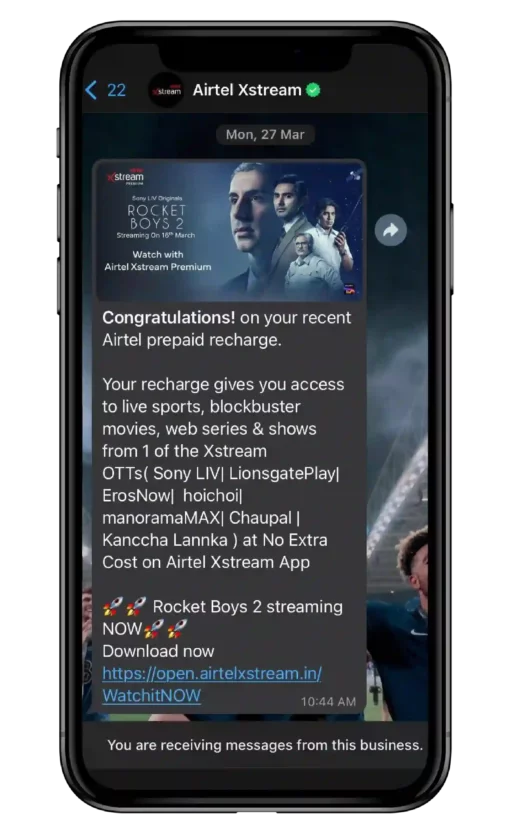
Airtel Xstream, a media content platform, wanted to increase its reach so that more and more customers realized the plethora of content available. In their efforts to do so, the team used WhatsApp to inform their customers about Airtel Xstream. Through this Airtel Xstream saw conversion rates of 30% through WhatsApp and MoEngage!
WhatsApp customers were given the option of opting in, and those who opted in were sent suggestions, announcements, and notifications on their WhatsApp. This made their customers curious and interested in the recommendations they sent, prompting them to use Netflix to watch them.
Reactivation
While dormant customers might not have many reasons to communicate with your brand, with WhatsApp as a channel, you can send them relevant products from time to time and offer them amazing deals on re-purchases, trying to get them back as active customers.
It’s important to keep in mind that while communicating with dormant customers, patience is key, and you must not bombard them with too many messages.
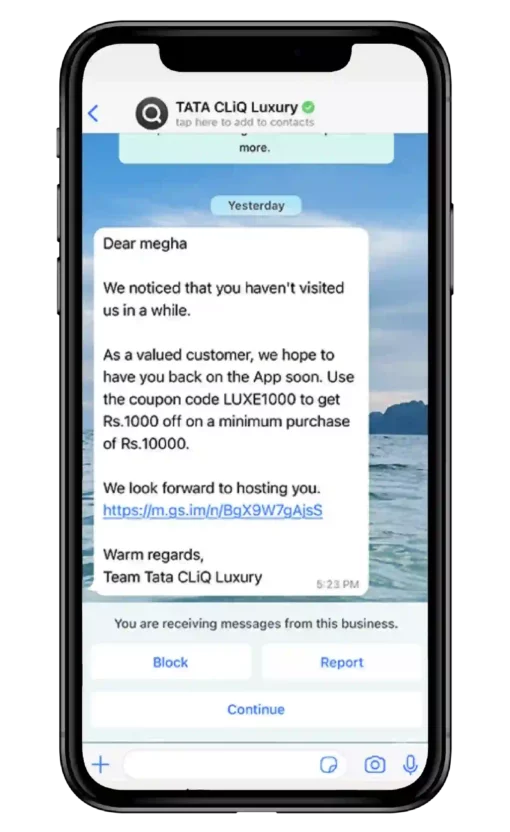
You can take a cue from how Tata CLiQ Luxury tried to bring back its inactive customers by sending them WhatsApp messages, inviting them to shop on their app along with a discount code.
Conclusion
The key to a successful WhatsApp Business strategy is thoughtful and personalized messages!
The majority of customer interactions today involve technologies like messaging services and chatbots. WhatsApp is a big facilitator of this change, and if your business isn’t on WhatsApp Business already, it’s time that it is.
When you use WhatsApp Business to reach out to your customer, it lets you connect with them at a personal level and understand more about their tastes and preferences to serve them better.
But to get your WhatsApp Business strategy right, it’s important that you put yourselves in the shoes of your ideal customer and think about what they might like, how they would prefer to be communicated with, and what relationship they would want to maintain with the brands they like. Once you answer this, it’s just a matter of time before you start building long-lasting relationships with your customers.

